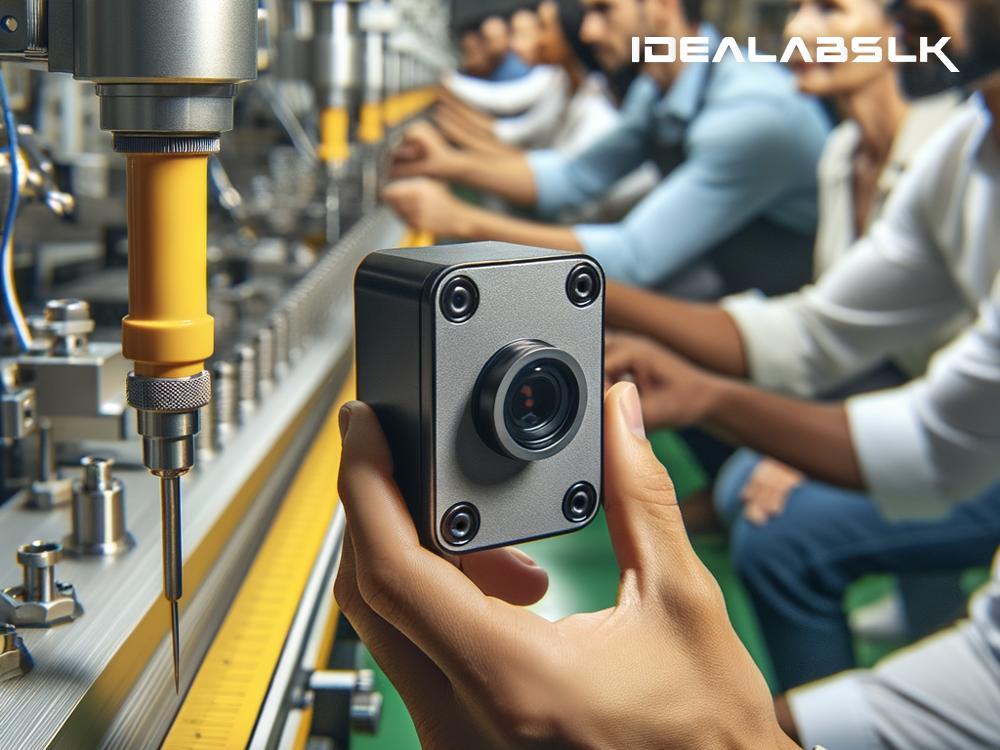How Smart Sensors Work in Manufacturing: A Simple Guide
In today’s fast-paced manufacturing world, smart sensors are the unsung heroes. They're like the eyes and ears of the factory floor, constantly gathering data and making sure things run smoothly. But how do these clever gadgets work, and why are they so crucial in manufacturing? Let’s break it down into simple terms.
What Are Smart Sensors?
Imagine you have a friend who can measure how hot your coffee is, tell if it’s about to rain, or even sense if a plant needs watering — all that without saying a word. That’s kind of what smart sensors do in the manufacturing environment. They are tiny, intelligent devices that can detect changes in their surroundings, such as temperature, pressure, or humidity, and then send this information to people (or other machines) to make informed decisions.
The Magic Behind Smart Sensors
The "smart" in smart sensors comes from their ability to not only collect data but also to process it and communicate it effectively. Here’s a simple breakdown of how they work:
-
Detection: At the heart of each smart sensor is a sensor element. This part of the device is responsible for detecting changes in its environment — it could be anything from a temperature change to the presence of a specific chemical.
-
Conversion: Once the sensor element detects a change, it converts this into an electrical signal. Think of this as translating a foreign language into something we can understand.
-
Processing: This is where the "smart" part really comes into play. Smart sensors have built-in microprocessors — tiny computers that can process the electrical signal, analyze what it means, and then decide what to do next.
-
Communication: After processing the data, the sensor needs to share its findings. This is done using wireless technology or cables, sending the processed information to other machines, computers, or workers, who can then take action based on the data.
The Role of Smart Sensors in Manufacturing
Now that we understand the basics of how smart sensors work, let’s explore why they’re such game-changers in the manufacturing industry.
Improved Efficiency
Smart sensors can monitor machinery in real-time, predicting when a piece of equipment might fail or when it needs maintenance. This means companies can fix problems before they cause downtime, keeping the production line moving smoothly and saving both time and money.
Enhanced Quality Control
By constantly measuring and analyzing various factors like temperature or humidity, smart sensors ensure that products are manufactured under optimal conditions. This leads to higher quality goods and happier customers.
Safety First
Safety in the workplace is non-negotiable. Smart sensors play a crucial role here, monitoring conditions that could be harmful to workers, like toxic gas levels or extreme temperatures, and alerting management before any health risks become actual hazards.
Sustainability
In today’s world, being green is more important than ever. Smart sensors help by ensuring that machines use the minimal amount of energy required to operate efficiently. They also monitor waste production, helping to reduce a factory’s environmental footprint.
Data-Driven Decisions
The information gathered by smart sensors helps businesses make informed decisions. By analyzing data trends over time, companies can identify areas for improvement, optimize their operations, and ultimately, boost their bottom line.
Conclusion
Smart sensors are transforming manufacturing by making it more efficient, safer, and eco-friendly. By gathering and analyzing data in real-time, they allow companies to make quick, informed decisions that lead to better outcomes. So, the next time you see a product labeled “Made in a Smart Factory,” you’ll know that smart sensors played a big role in its creation.
In a world where efficiency and sustainability are key, the role of smart sensors in manufacturing cannot be overstated. They not only streamline the production process but also pave the way for innovations that will shape the future of manufacturing. So, let's tip our hats to these tiny technological titans — the smart sensors, for they truly are the unsung heroes of the manufacturing world.

